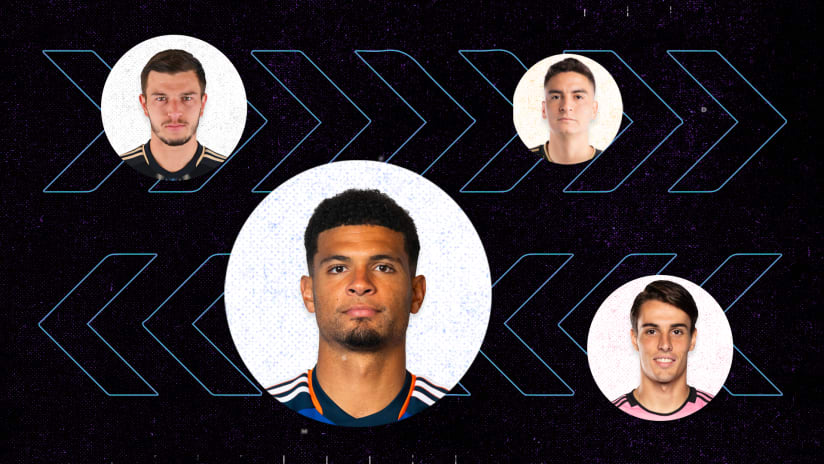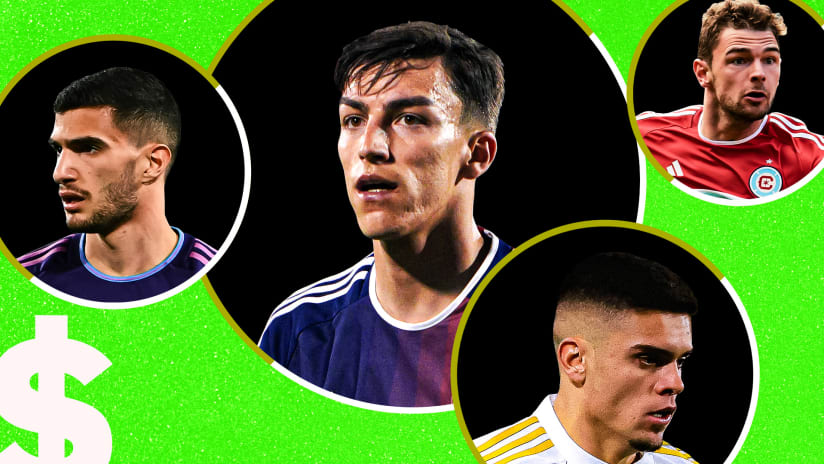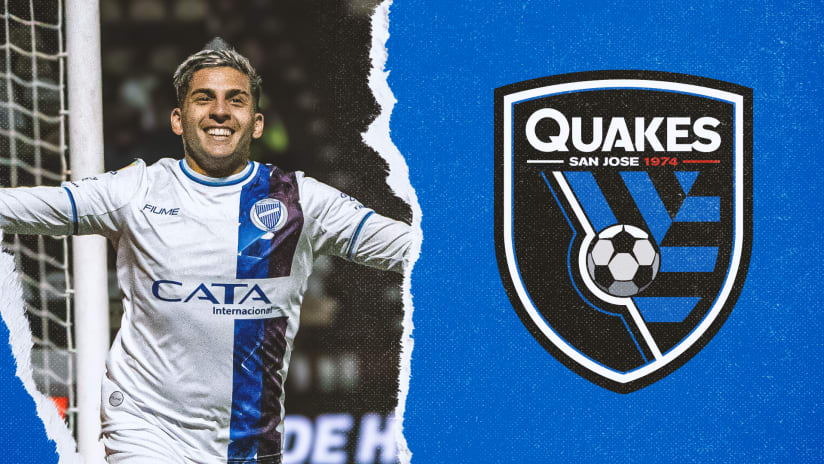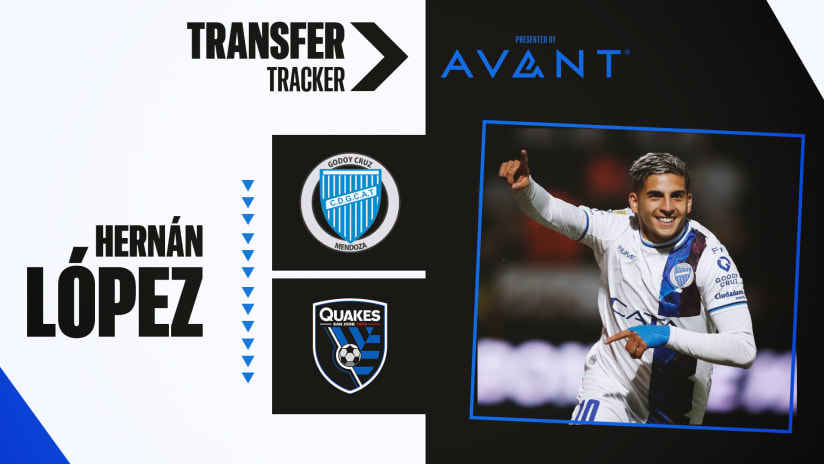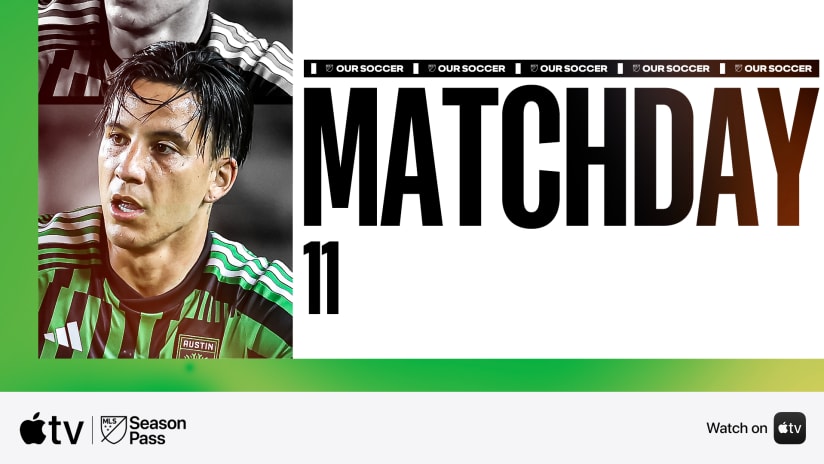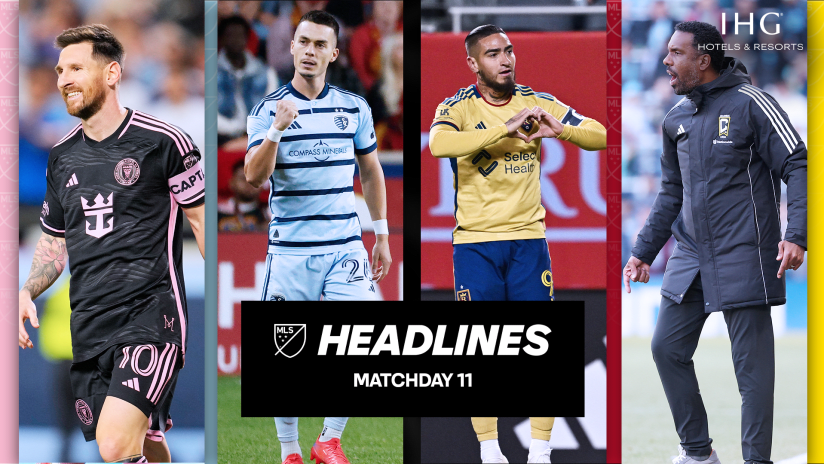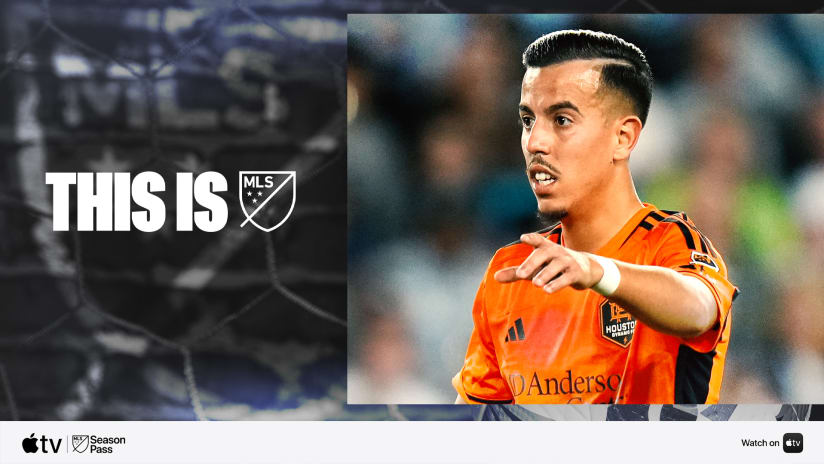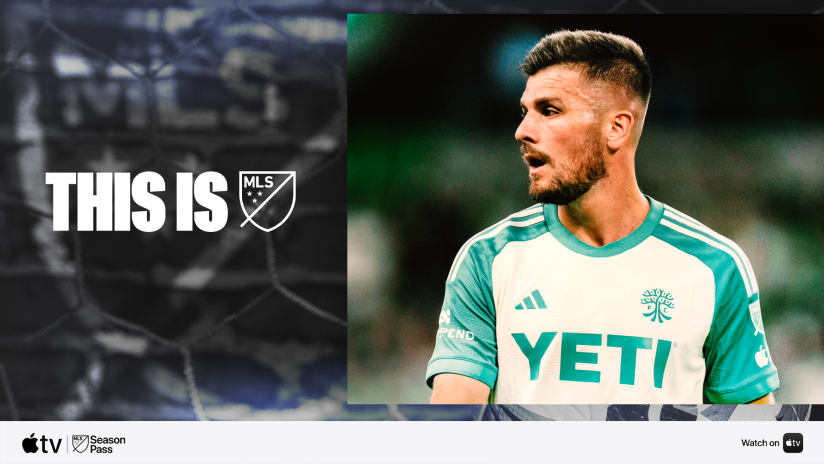Arturo Alvarez's wonderful, precisely-struck volley had just crested and had yet to settle softly in the Chivas goal when nine other FC Dallas teammates commenced their giddy assault forward.
Every player on the field dashed happily toward the Dallas goal scorer, eager to participate in the 56th minute celebration.
Alvarez had just scored the first goal in SuperLiga history, and had put his club ahead of Chivas de Guadalajara in the debut match of round-robin group play. But it all looked, judging by the level of joy bursting out of the celebration, as if Dallas had just wrapped up a conference crown or taken the lead in an MLS Cup Final.
If there was any doubt before, the degree of jubilation left no doubt about how Major League Soccer players are treating SuperLiga, the debuting tournament that includes four MLS clubs and a matching number of clubs from Mexico:
The kids from the States want desperately to win this puppy.
And why wouldn't they? SuperLiga is a little like Christmas in July for MLS talent. Yes, the big prize is still to be claimed later in the year; the MLS Cup remains every club's top-priority target. But there are some shiny midsummer rewards sparkling in this new SuperLiga chase - and they aren't so far from reach.
First, MLS clubs see this as the fastest path to a swell "bonus" paycheck. A multi-million dollar purse is up for grabs, with $1 million going to the winner. If that does not resonate as a prize worthy of an entire club's enormous effort in today's sports world, stop for a second to consider the potential individual gain.
While it's true that the average MLS salary might fall somewhere in the $100,000 range, that figure is a tiny bit misleading. The top level salaries - the big money earned by bright lights such as Landon Donovan, Juan Pablo Angel, Cuauhtemoc Blanco and a fellow named Beckham, to name some -- skew the count. Strip away the top one or two salaries for each club, and the average, workaday MLS player is closer to the $60,000-70,000 ballpark annually.
Now consider how that $1 million prize money may be divvied up.
Individual clubs will decide how to split the pot, just as teams in other leagues do with championship prize money. The breakdown may dictate that a player who starts at least one tournament contest gets a full share, reserves may get a half-share, support staff like equipment guys get a quarter-share, etc.
But don't get bogged down in the details here. The point is this: each player on the winning side may be looking at a sweet little check for about $25,000 or more.
Most MLS players don't lead the lavish, MTV Cribs life that players from, say, the NBA or NFL might. They are more like regular folks in terms of earnings. So, ask yourself if you'd work a little harder with a $25,000 bonus dangling.
Then there's this not-so-small matter of league pride.
Major League Soccer wants to sit at the big kids' table. The league is 12 years old now and seeking ways to establish its true place in the global soccer order. Maybe it's not the English Premier League. Then again, what beside the EPL is the EPL?
MLS and everyone who contributes desires to be seen as a next-tier world league, taking up residence alongside the much-older associations in places like Portugal, Scotland, Chile and, of course, Mexico.
But there's a harsh reality to the chase for respect: it must be earned. And that's where SuperLiga claims its importance beyond just financial gain. This is the most direct route to elevated global respect. Teams from Mexico and the United States have met in previous competitions, most notably in the annual CONCACAF Champions' Cup.
But they've never met so extensively as in SuperLiga. And never before have the odds leaned in the U.S. clubs' favor as they do now. The timing doesn't favor MLS sides in CONCACAF Champions' Cup; teams from north of the border are yawning and stretching, just emerging from their offseason slumber. In SuperLiga, the roles are reversed, with the Mexican sides mashing the accelerator, straining to quickly reach top speed after an offseason respite.
So FC Dallas and the Los Angeles Galaxy saw Tuesday's first day in the tournament as the perfect opportunity to seize initiative. At Pizza Hut Park just outside Dallas, Chivas looked particularly vulnerable. Nine Mexican players were being given a little additional time off following a busy summer of international play. In Los Angeles, even with David Beckham's left ankle ruling him out, the Galaxy had reason to like their chances against a very good Pachuca team.
Even the best teams simply can't be midseason fit or midseason sharp so early in preseason, particularly when playing on the road, as Pachuca was.
So FC Dallas manager Steve Morrow had put his team through an intense training session two nights prior to the Chivas contest. He wanted the players to sense the urgency of the moment, to know how serious he was about this competition. Not that they needed much of an extra push. They understood the stakes and sensed the nervous energy attached to a brand new event with a "something different" spice.
Which is exactly why they all took off in a frenzied sprint to dog-pile Alvarez after his well-taken goal. Only Ray Burse, the young FC Dallas goalkeeper pressed so suddenly into action by ailments to starter Dario Sala and top backup Shaka Hislop, chose not to join the exaltation, collecting himself intently at the other end.
That's also why FC Dallas players were so upset with Chivas' 67th-minute equalizer. Chivas attacker Antonio Olvera later acknowledged that he thought for brief instant referee Walter Quesada would stop play as the ball bounced off Pizza Hut Park's recently re-sodded pitch and struck his hand, just before his big volley dipped behind Burse.
FC Dallas players protested vehemently, but Quesada allowed the goal to stand. Later, in the post-game news conference, Morrow lamented two points lost in the round-robin standings, and also expressed disappointment in events that led to Drew Moor's 72nd-minute ejection. Dallas players were upset that officials missed captain Hector Reynoso's role in the dust-up, an elbow directed at Moor close to the Chivas goal.
Beyond that, Morrow said, the speed of play and overall intensity rose above the level of normal MLS matches. It was more like MLS playoff soccer, as every individual battle, every Dallas surge against bunkered Chivas and every counter attack from the Mexicans seemed to include an additional layer of urgency.
"I thought it was a great advert for SuperLiga," Morrow said. "There was an extra edge to the game tonight, and there was a lot of quality out there."
Not just extra quality, but also some additional "want-to." It was visible in the second match as well as Los Angeles took control of the four-team group with a 2-1 win against Pachuca. The telling moment at The Home Depot Center came late, as Donovan and Carlos Pavon crashed forward on a breakaway.
Donovan just missed on a slicing pass that would have provided Pavon with the simplest of finishes, and would have finished Pachuca once and for all Tuesday.
The instant Donovan's pass was picked off, neither he nor Pavon spent even a half-second weeping for the moment or feeling sorry for the lost opportunity. The pair turned in unison, almost as if it was choreographed, immediately chasing back to help on defense. Never mind that it took a breakneck, half-field sprint to create the chance.
That's the extra edge. Apparently, that's what we'll all continue to see as SuperLiga plays out over the next two weeks.
Steve Davis is a freelance writer who has covered Major League Soccer since its inception. Steve can be reached at BigTexSoccer@yahoo.com. The views and opinions expressed in this column are those of the author's, and not necessarily those of Major League Soccer or MLSnet.com.



